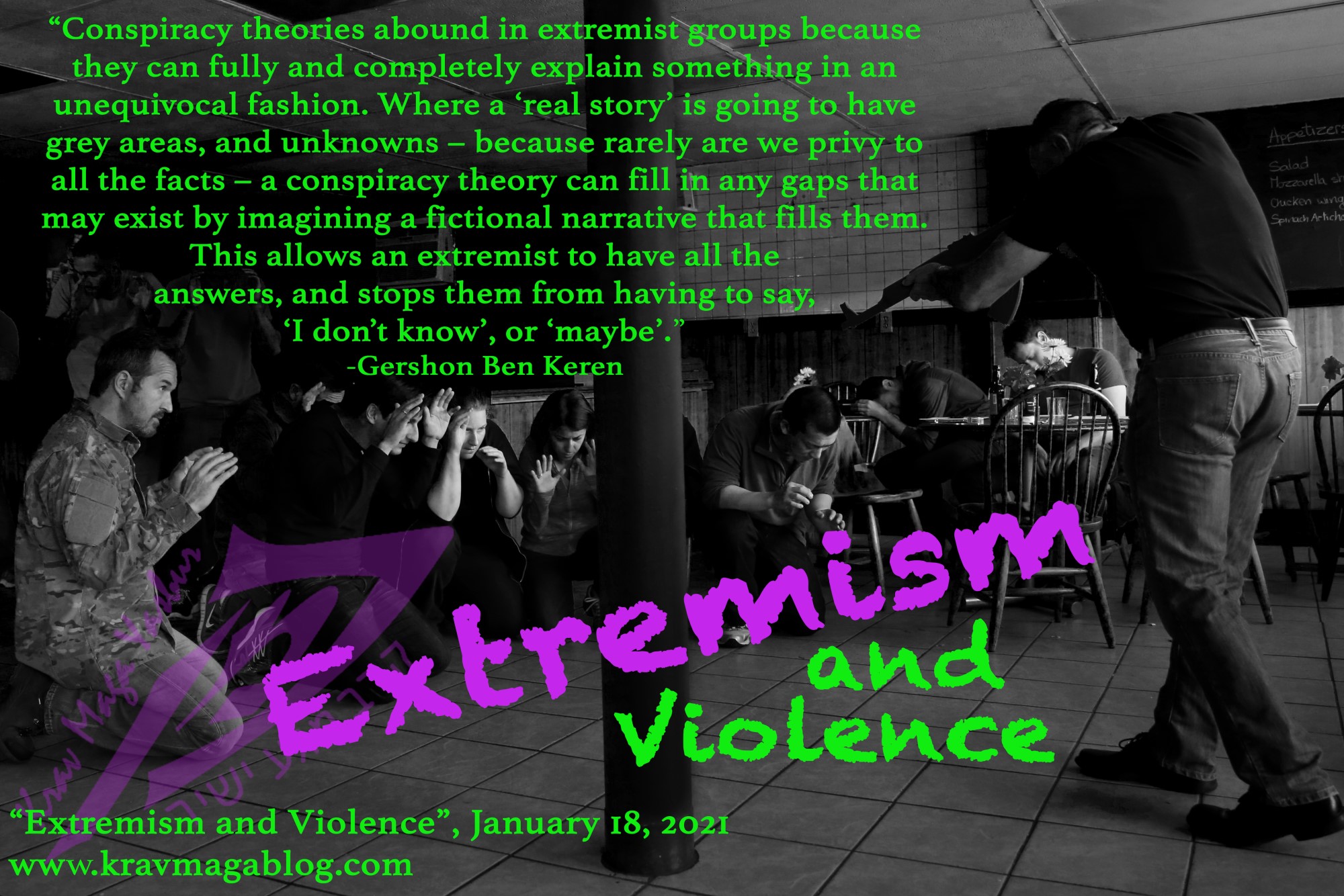In this article I want to take a look at how/why extreme beliefs (extremism) can lead to violence. Before examining the phenomenon of extremism, which can be political, religious etc. it is worth setting out and differentiating some of the things that often get confused with, or become synonymous with extremism, that end up distracting us from truly defining what extremism is; and if we can’t define it, we can’t properly identify and recognize it, which means that we’ll be unable to deal with it. Berger’s statement that “Terrorism is a tactic, whereas extremism is a belief system”, is a great place to start in understanding what extremism is and isn’t. There are many people who might have extreme views on a subject/issue but who wouldn’t condone terrorism and/or the use of violence to either enforce or express their viewpoint, however this often gets confused e.g., there are people who even today believe that the earth is flat, but don’t think that the way to prove/get people to accept this is to take hostages, blow up public buildings etc. To use violence in this drastic way, you must hold extreme views, but this doesn’t mean everybody with extreme views believes violence is a necessary or useful vehicle for expressing them. Another important facet of extremism, is that those whom we might identify as extremist, rarely see themselves this way. From their perspective they aren’t on a spectrum of beliefs they are simply in a position of understanding/knowing the “truth”. As far as they are concerned, there isn’t a spectrum, there are simply two positions: right and wrong. It is this that creates the singular most defining aspect of extremism. The creation of “in” and “out” groups.
It’s a long time since I - was made to – read Milton’s Paradise Lost, but I remember one of the philosophical arguments that was made in it: that “Good” could exist without “Evil”, but “Evil” couldn’t exist without “Good” i.e., Evil can’t exist as an entity on its own, as it needs to define itself by something that it isn’t. Extremism is much the same: it is a reaction/response to something i.e., another set of beliefs. It has to have something to fight against and oppose, whether that’s another religious group, another political perspective etc. In most cases, it is this group, perspective and/or set of opinions and ideas, which is somehow responsible for the persecution and oppression, of the group that the extremist identifies with, and whilst an extremist might claim that their cause, such as the establishment of an Islamic Caliphate – as with the Islamic State - is something that stands alone as a cause, it sets out a vision, which is at odds with most of the Muslim world (both Sunni and especially Shia), and positions itself as a distinct group in opposition to the majority of Islam e.g., it has been responsible for the death of more Muslims than Non-Muslims. If you look at the way most extremists and extremist groups position themselves, it is largely through attacks on the groups that they believe are “wrong”, and/or that are persecuting them, with their own “vision”, only making up a small percentage of their overall content. It is the consistent targeting of the “out” group, whether that is the mainstream, or a selection of other smaller groups, that is one of the defining features of extremism.
With the idea/creation of “in” (those who are right), and “out” (those who are wrong) groups, comes the need for the groups to separate, and this leads to a degree/level of misinformation, which can in turn lead to violence. If you decide to separate yourself from those of a certain religion, or political opinion/persuasion, you will soon start to lose a firsthand experience of that group’s viewpoints and beliefs etc., becoming more dependent on information gathered and circulated by your own group – and if members of that group, like yourself, represent the “truth” you are likely to treat a meme, with a statistic, photo, or quote on it, as having passed journalistic muster e.g., such as a photo/meme of Belgian Miners, being presented as “Irish Slaves” etc. If the majority of your information is provided by your own group, the opportunity for misinformation increases, as does the potential for conspiracy theories. Conspiracy theories abound in extremist groups because they can fully and completely explain something in an unequivocal fashion. Where a “real story” is going to have grey areas, and unknowns – because rarely are we privy to all the facts – a conspiracy theory can fill in any gaps that may exist by imagining a fictional narrative that fills them. This allows an extremist to have all the answers, and stops them from having to say, “I don’t know”, or “maybe”. If there is something that the group doesn’t want to hear, or doesn’t align, with their reality fully, a half-truth and/or an exaggeration (most lies have some “factual” element that they are constructed from) can be created and developed to explain things away and reinforce the group narrative. This normally involves aiming it, and directing it towards the “out” group, and suggests some injustice that they have committed against the “in” group. With enough momentum, that comes from retelling/re-circulating them within the group (and a lack of “actual” information permeating, due to having separated themselves from those who don’t share their opinions/views), there is potential for members of the group to engage in extreme acts of violence, either to cause/create change or express outrage; or possibly a mixture of the two. This is especially true in times of change/uncertainty.
We all gravitate to those who share similar beliefs to us, however extremism, is unique in that it can often act as an umbrella, that cover many single issues e.g., it is not uncommon for different terrorist groups, with different goals, to work together, because they share a “common” enemy etc. Extremist political movements can provide a larger voice to single issue movements, which results in groups that otherwise wouldn’t be aligned with each other standing shoulder to shoulder, because they all share a common “out” group/enemy. It is not common beliefs that unite them but a shared hatred/opposition to another group, and it is this which transitions extreme views and beliefs, into extremism; which in turn can lead to violence against that group.
Share:

Gershon Ben Keren
2.8K FollowersGershon Ben Keren, is a criminologist, security consultant and Krav Maga Instructor (5th Degree Black Belt) who completed his instructor training in Israel. He has written three books on Krav Maga and was a 2010 inductee into the Museum of Israeli Martial Arts.
Click here to learn more.

